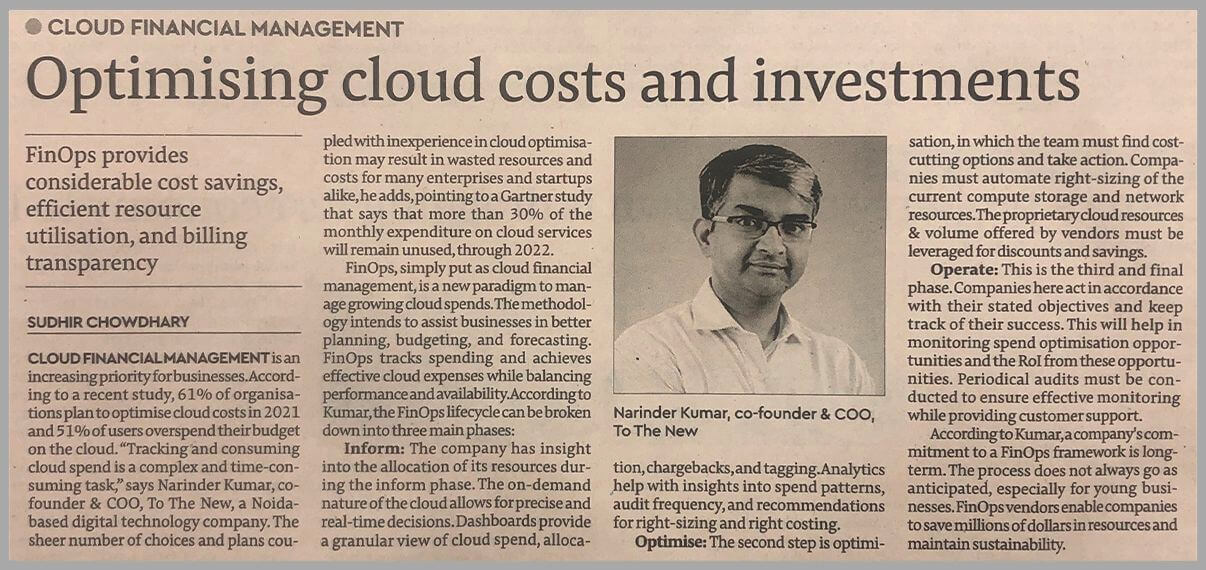Cloud financial management: Optimising cloud costs and investments
By Narinder Kumar (Co-founder & COO, TO THE NEW)
Cloud financial management is an increasing priority for businesses. According to a recent study, 61% of organisations plan to optimise cloud costs in 2021 and 51% of users overspend their budget on the cloud. “Tracking and consuming cloud spend is a complex and time-consuming task,” says Narinder Kumar, co-founder & COO, To The New, a Noida-based digital technology company. The sheer number of choices and plans coupled with inexperience in cloud optimisation may result in wasted resources and costs for many enterprises and startups alike, he adds, pointing to a Gartner study that says that more than 30% of the monthly expenditure on cloud services will remain unused, through 2022.
FinOps, simply put as cloud financial management, is a new paradigm to manage growing cloud spends. The FinOps lifecycle can be broken down into three main phases:
Inform
The company has insight into the allocation of its resources during the inform phase. The on-demand nature of the cloud allows for precise and real-time decisions.
Optimise
The second step is optimisation, in which the team must find cost-cutting options and take action. Companies must automate right-sizing of the current compute storage and network resources.
Operate
Companies here act in accordance with their stated objectives and keep track of their success. This will help in monitoring spend optimisation opportunities and the RoI from these opportunities.
The process does not always go as anticipated, especially for young businesses. FinOps vendors enable companies to save millions of dollars in resources and maintain sustainability.
Read the full article here.

